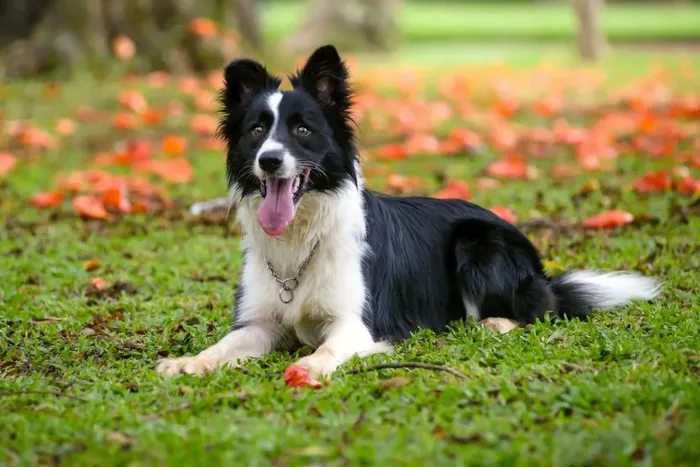Border Collies are a highly active breed that require a healthy and balanced diet to maintain their energy levels and overall health. As a pet owner, it is important to recognize the signs that your Border Collie may have eaten too much food. In this article, we will discuss how to know if your Border Collie ate too much food and what you can do to prevent overeating.
Why Overeating is a Concern for Border Collies
Overeating can be a concern for Border Collies for several reasons. First, Border Collies are a highly active breed that require plenty of exercise. If your dog is consuming more calories than he is burning off, he may become overweight or obese. This can lead to a variety of health problems, including joint pain, heart disease, and diabetes.
In addition, overeating can cause digestive issues in Border Collies. Eating too much food can lead to stomach upset, vomiting, and diarrhea. In severe cases, overeating can even lead to a condition called bloat, which is a life-threatening emergency.
Signs That Your Border Collie Ate Too Much Food
Here are some signs that your Border Collie may have eaten too much food:
Lethargy – If your dog is feeling sluggish or tired, it may be a sign that he has eaten too much food. Overeating can cause your dog to feel lethargic and less active than usual.
Vomiting – If your Border Collie has eaten too much food, he may vomit. This is the body’s way of getting rid of excess food that it cannot digest.
Diarrhea – Eating too much food can also cause diarrhea in Border Collies. This is because the body is trying to get rid of excess food and fluids.
Bloating – Bloating is a serious condition that can occur when a dog eats too much food. It is characterized by a swollen abdomen, difficulty breathing, and restlessness. If you suspect that your Border Collie is experiencing bloat, seek veterinary care immediately.
Preventing Overeating in Border Collies
Here are some tips to help prevent overeating in your Border Collie:
Measure Your Dog’s Food – Use a measuring cup to ensure that you are feeding your Border Collie the correct amount of food. This can help prevent overfeeding and obesity.
Feed Your Dog at Regular Intervals – Stick to a regular feeding schedule to help prevent overeating and maintain a healthy weight.
Provide Plenty of Fresh Water – Make sure that your Border Collie has access to plenty of fresh, clean water at all times.
Avoid Table Scraps – Avoid feeding your Border Collie table scraps, as these can be high in fat and calories and can upset your dog’s digestive system.
Exercise Your Dog – Border Collies are a highly active breed that require plenty of exercise. Regular exercise can help your dog burn off excess calories and maintain a healthy weight.
Choose the Right Food – Choosing the right food for your Border Collie is important in preventing overeating. Look for a high-quality dog food that contains a balance of protein, fat, and carbohydrates. Avoid foods that contain fillers or artificial preservatives.
Treats in Moderation – Treats can be a great way to reward your Border Collie, but they should be given in moderation. Too many treats can contribute to overeating and weight gain.
Conclusion
Overeating can be a concern for Border Collies, as it can lead to weight gain, digestive issues, and even life-threatening conditions such as bloat. It is important to recognize the signs that your dog may have eaten too much food and take steps to prevent overeating. By measuring your dog’s food, feeding him at regular intervals, providing plenty of fresh water, avoiding table scraps, exercising him regularly, choosing the right food, and giving treats in moderation, you can help ensure that your Border Collie maintains a healthy weight and overall health. If you have any concerns about your dog’s diet or feeding habits, be sure to consult with your veterinarian. They can provide you with guidance on the best diet and feeding schedule for your Border Collie’s individual needs.


